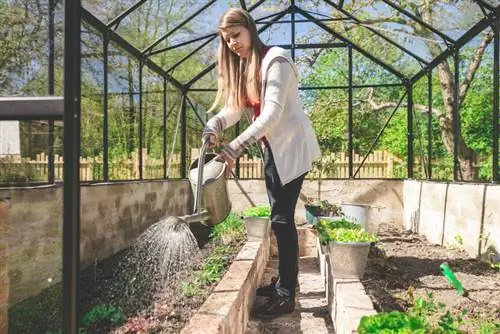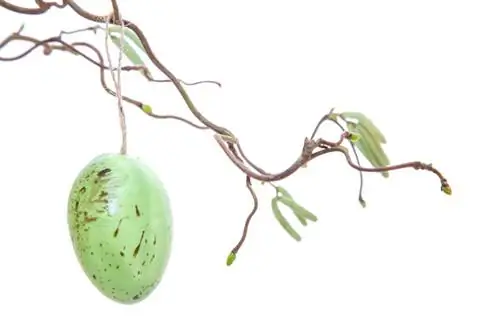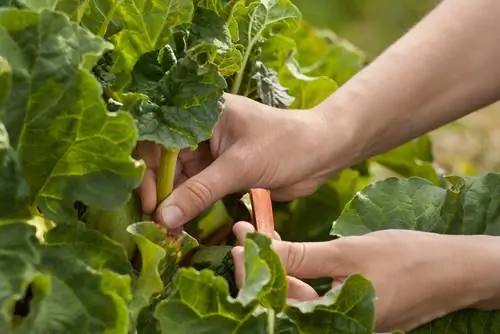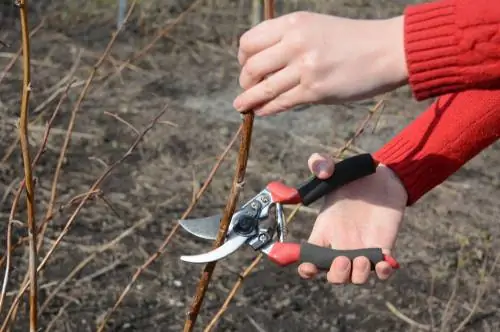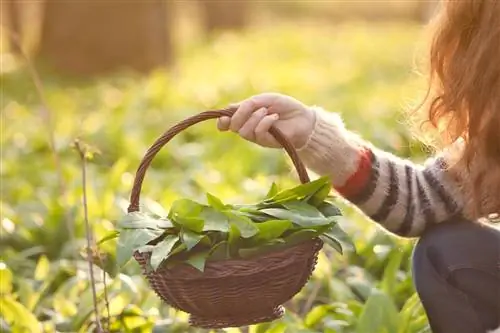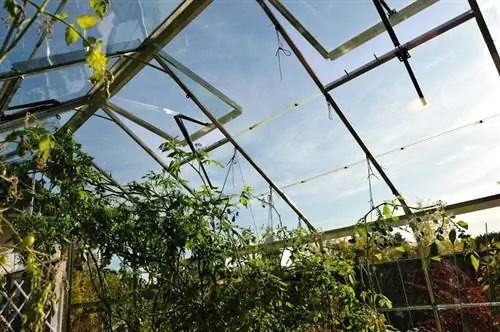- Author admin leonars@hobbygardeners.com.
- Public 2023-12-16 16:46.
- Last modified 2025-01-23 11:21.
Conscientious greenhouse preparation is essential for proper breeding results and abundant yields. This is primarily about optimal structure and the growth-promoting composition of the soil, which must be carefully adapted to the different plant species.
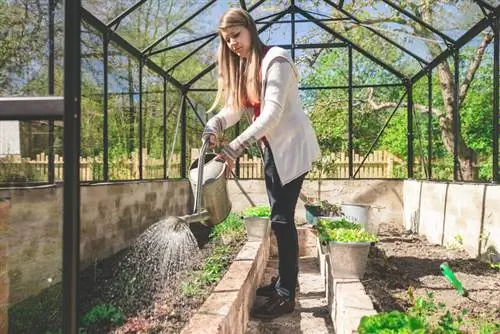
How do I prepare my greenhouse for optimal plant growth?
When preparing the greenhouse, optimal soil structure and composition is crucial. Choose special soils and substrates, pay attention to the pH value, promote crumbly structures and humus-rich clay soils to create ideal growing conditions for your plants.
Unlike outdoor planting, the young vegetables in the greenhouse often do not grow directly in the garden soil, but are cultivated with very special soil and substrates. Some of these mixtures, primarily for commercial cultivation, even contain no soil components at all. Substrates with an organic composition have much more favorable structures that can storenutrients, water and air better and distribute them to the plants. We come across a wide variety of varieties in the trade, for example as planting, pricking, sowing or special soil for certain individual plant species. And there are also quite high demands placed on the greenhouse soil itself, especially in warm houses.
Plant knowledge is in demand
Which soil is ideal for each type of cultivation requires a lot of botanical knowledge and still needsa lot of gardening experienceHere is a small selection of different soils and their components that are useful on the ground when preparing the greenhouse:
| Material | Features | Type of use |
|---|---|---|
| expanded clay | light and porous clay granules (without nutrients!) | Hydroponics, cacti, orchids |
| Peat | loose structure, low pH value, very good storage capacity for air and water | universally usable ready-made soils from the trade |
| Compost | heavy and nutrient-rich, favorable crumb structure | Pot and container plants, seed soil |
| Sound | high trace element content, heavy | all water-storing plants, added to dry soil |
| Bark humus | similar to garden compost | cheap for growing flowers |
| Garden soil | good water holding capacity, heavy | can be used for your own seed mixtures |
It's all about the right mix
If you have high-quality garden soil, you have very little work to do when preparing the greenhouse. In this case, a favorable breeding ground is already available when dug up to the depth of a spade. If you are not entirely sure, as a precaution, have a soil sample analyzed in a laboratory so that the soil fertility becomes clear after just a few days. For vegetable or herb cultivation, a pH value between 6 and 7would be desirable in the slightly deeper soil layers.
Preparing the soil structure in the greenhouse
If possible, no sieved soil should be used. It can be a little more crumbly so that the plants can root better later. A sandy loam soil with sufficient humus is optimal for young plants and promotes soil life and long-term fertility.
Tip
Aim for approximately the following nutrient content, based on100 grams of dry greenhouse soil: 15 to 25 mg potassium oxide, 15 mg magnesium and 15 to 25 mg phosphate.

